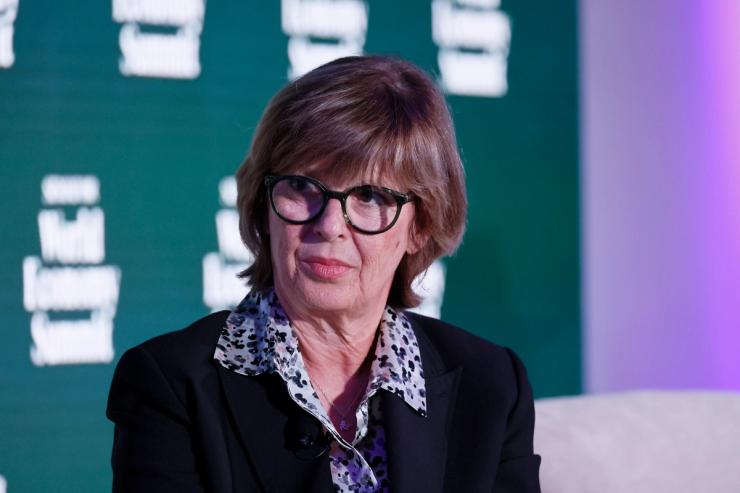The News
Euroclear — the Belgian central securities depository that holds about two-thirds of Russian assets frozen since the onset of Moscow’s war in Ukraine — is facing “a lot of scrutiny” from clients in Asia and the Middle East on how it was managing the sanctions fallout, its CEO said.
Speaking at Semafor’s World Economy Summit in Washington, DC, Valérie Urbain said maintaining the trust of clients in other parts of the world was “an area of concern” at a time when countries wondered how any future sanctions might impact their own assets. “That’s a real risk, and that’s a discussion that we are having almost every week.”
Euroclear was holding bonds for the Russian central bank before Russia’s full-scale invasion of Ukraine in 2022 and now holds about €185 billion ($215 billion) in frozen Russian assets following EU sanctions against Moscow. As the bonds have matured, Euroclear has invested the resulting cash in the European Central Bank, with the remaining €9 billion of securities set to mature in 2026 and 2027.
The EU has been looking for a way to use these funds to pay for reconstruction in Ukraine, and is still thrashing out details on how to invest the Russian cash in bonds issued by the European Commission with guarantees from member states.
Know More
Urbain said that a proposal on how to manage the risk of the funds was under discussion with the European Commission, without providing further details. “Our position has always been that you cannot seize the assets and leave us with a liability, because then indeed our capital is not big enough to support that,” she said.
The EU is aiming to reach a political agreement this week on using the assets, after which it will seek to create a legal proposal for a mechanism to release money by the second quarter of next year, Bloomberg reported.
Urbain said about 200 of her firm’s staff were working on the sanctions issue every day: “It’s a very heavy undertaking for Euroclear.”



